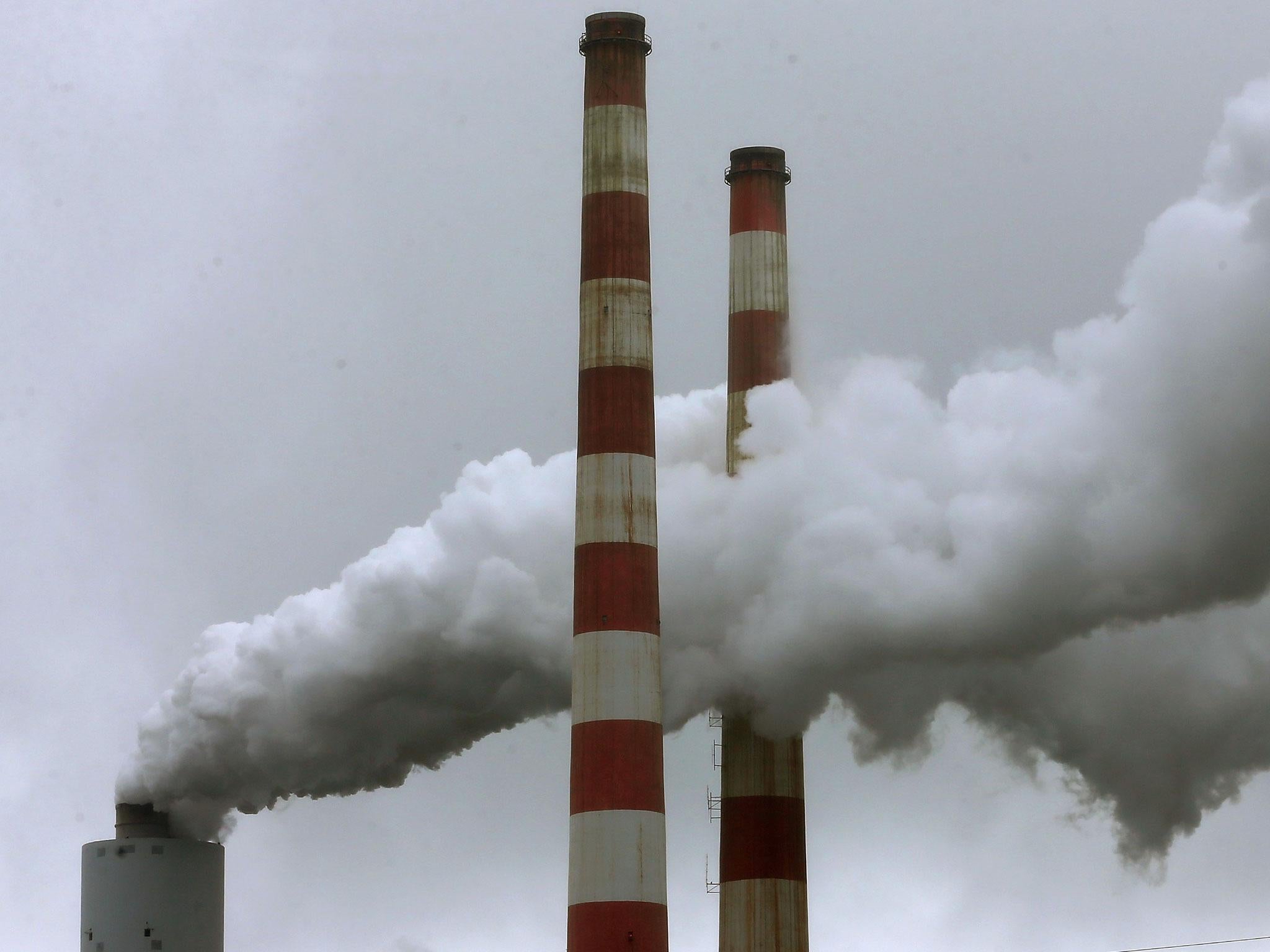UK carbon emissions: The stench of missed targets as the Coalition's green credentials are 'torn up and thrown out'
Polluting coal-fired power plants to stay open long after they were scheduled to close, report finds

Your support helps us to tell the story
From reproductive rights to climate change to Big Tech, The Independent is on the ground when the story is developing. Whether it's investigating the financials of Elon Musk's pro-Trump PAC or producing our latest documentary, 'The A Word', which shines a light on the American women fighting for reproductive rights, we know how important it is to parse out the facts from the messaging.
At such a critical moment in US history, we need reporters on the ground. Your donation allows us to keep sending journalists to speak to both sides of the story.
The Independent is trusted by Americans across the entire political spectrum. And unlike many other quality news outlets, we choose not to lock Americans out of our reporting and analysis with paywalls. We believe quality journalism should be available to everyone, paid for by those who can afford it.
Your support makes all the difference.The UK is set to miss key targets on carbon emissions, because too many of the country’s most polluting coal-fired power plants are set to stay open far longer than the Government had pledged, a new report warns.
Promises to introduce policies that would force coal plants to close have not been fulfilled, says the report by Imperial College London.
Ageing coal plants must close by 2025 if the UK is to get anywhere near its legally binding commitment to slash carbon emissions by 60 per cent of 1990 levels by 2030.
But while the Government said it would make it so expensive for coal plants to operate that they would have no choice but to close within a decade, it has failed to do so, warns the report.
This means a significant portion of the hugely inefficient coal plants from the 1960s and 1970s – a major source of carbon emissions – are likely to keep operating into the 2030s, making it virtually impossible for the UK to meet key targets.
The report’s findings will leave questions over David Cameron’s vow that the Coalition would be the “greenest government ever”, and this is set to be further challenged when he announces details of a major road-building programme today.
He will promise at the Confederation of British Industry’s annual conference in London “over 100 improvements to our major roads, hundreds of extra lane miles on our motorways and trunk roads and the green light given to major projects that have stalled for years”.
Chris Todd, of the Campaign for Better Transport lobbying group, said: “The Government is tearing up its green credentials and throwing them out of the window. On the same day it announces a massive road-building programme, we also discover that dirty coal plants are going to be staying open for longer.”
The Imperial College report into power plants predicts that up to half of the most polluting coal stations are likely to stay open years longer than the Government is banking on, if the country is to meet its target to reduce carbon emissions.
“Britain is in danger of massively overshooting its carbon-emission target for electricity if we fail to close coal,” said Jenny Banks, energy and climate change specialist at WWF, the environmental charity that commissioned the report.
Experts say the UK must reduce emissions from the power sector – which make up nearly half of the country’s total – to one tenth of today’s level if it is to meet its climate goals. This means the widespread use of existing coal stations beyond 2030 would also put the UK’s overall emissions target well out of reach.
The report’s lead author, Dr Rob Gross, added: “Our economic modelling shows that it is unwise to simply assume that coal-fired power stations will all close in the 2020s. If the Government wants old power stations to close it needs to ensure that happens through legislation.”
“With the UK’s existing suite of energy policies, in every instance coal still played a role in generating electricity and 2030 emissions targets were missed,” Dr Gross said.
A spokesman for the Department for Energy and Climate Change said: “Unabated coal [from plants which don’t have carbon capture and storage devices fitted] is expected to account for only around 1 per cent of total electricity generation in Great Britain in 2025, and to continue to decline thereafter.”
Join our commenting forum
Join thought-provoking conversations, follow other Independent readers and see their replies
Comments